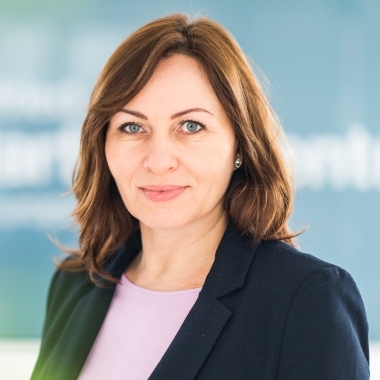Slovakia and the Road to Isolationism
14 March 2024
Image Credits: AFP
Slovakia seems resolutely embarked on a path that Hungary, under the leadership of Viktor Orbán, has already taken. A path of isolationism. Worse still, the Slovak government is going down this path at an alarming speed.
Robert Fico, the winner of last year’s parliamentary elections, promised a return to a sovereign form of foreign policy. This policy is already bearing its first unflattering fruits. The actions of his government, especially a pivot towards Russia, are weakening ties with the EU and NATO and undermining the country’s credibility.
Fico’s statements on the second anniversary of the war in Ukraine, that the war began in 2014 with the “rampage of Ukrainian neo-Nazis”, sparked controversy as he clearly sided with the aggressor, Russia. This statement did not stop him from rushing to Paris for a conference on Ukraine initiated by President Macron. His actions point to a personal effort to improve his international image, which was damaged by the 2018 murder of investigative journalist Kuciak and his fiancée and corruption scandals involving his government, which forced him to resign as Prime Minister in 2018, ending his second stint in office.
Despite differing stances on the war in Ukraine, the V4 Prime Ministers met in Prague. While the Czech government actively supports Ukraine with ammunition supplies and funding, Slovakia refuses to provide any military assistance. These differences were further highlighted when Polish PM Donald Tusk, Czech PM Petr Fiala and Czech President Petr Pavel convened for a meeting, while Robert Fico and Viktor Orbán met with former Czech President Miloš Zeman. Zeman is known for his sympathies for Russia, while Petr Pavel is a critic of the Kremlin and comes from NATO ranks. Despite the controversial meeting, Fico still pretends everything is fine and the V4 makes sense.
The tables have turned since last week. The prestigious GLOBSEC Security Conference will take place in Prague, not Bratislava, for the first time in 18 years, due to constant criticism from the government. Part of the conference will take place directly at Prague Castle, the seat of President Petr Pavel. He will be hosting and welcoming foreign dignitaries, a role habitually reserved to Slovak constitutional officials.
GLOBSEC has quickly realised that given current Slovak foreign policy, which clearly supports Russia, it has no chance of presenting a constructive stance on security threats from a Slovak perspective. The country is thus losing a well-established and well-known brand. And of course, it is losing respect. One could easily conceive GLOBSEC taking the Conference to Warsaw or one of the Baltic states next year.
In addition to all this, last Wednesday Prime Minister Fiala announced he was cancelling the meeting of the Czech and Slovak governments. This tradition has existed since 2012 and serves as a testament to the close bond between the two countries. Fiala justified his decision with the words: “We do not consider it appropriate to hold intergovernmental consultations with the government of the Slovak Republic in the coming weeks and months. In addition to differing views on foreign policy, the cancellation was also caused by the meeting of the Slovak Foreign Minister Jozef Blanár with Russia’s Lavrov in Turkey.
There is no doubt that Fico’s government will survive even without GLOBSEC and without friendly talks with the Czech government. These decisions, which some consider merely symbolic, still carry considerable weight in politics, where symbols wield enormous power. However, it is Slovakia’s “sovereign” foreign policy that is leading the country to isolation. After twenty years in the EU and NATO, there is a fundamental change in the country’s political and security direction.
Fico’s “sovereign” foreign policy raises questions about his motivation. It is hard to believe that his actions are just a manifestation of his admiration for Orbán, Putin or Russia.
Fico badly needs time for his current and possibly future government to clear all those connected to his political party who have been accused and prosecuted of corruption. Fico needs time to clear his people, to cover his tracks and to subvert judicial authorities. That is why his first step was to abolish the Special Prosecutor’s Office, which dealt with such corruption cases linked to politicians.
Fico is also undoubtedly helped by the propaganda and limited critical thinking among many Slovaks. About 51% of Slovaks believe that the war in Ukraine was caused by Ukraine or the West, compared to only 4% in Poland. Fico’s government intention to dismantle the anti-disinformation fund and weaken media literacy programs will only worsen this alarming situation.
Slovakia is polarised and frustrated after the pandemic, the unabated war in Ukraine and economic uncertainty. The country is facing the outflow of the prestigious conference, and renowned antivirus company ESET is also re-evaluating its presence in the country. Most concerningly, young people and talented individuals are losing faith in the possibility of change and seeking opportunities abroad.
Even the approaching presidential elections, in which Fico’s candidate, Peter Pellegrini, is likely to win, no longer evoke great emotions. After taking control of the presidential palace, Fico will have absolute control over the country and its international performance. The European Commission closely monitors potential limitations on press freedom, particularly concerning the government’s prepared influence over public broadcasting, and we should all do the same in efforts to make sure Slovakia doesn’t reach the same destination as Hungary.
ENJOYING THIS CONTENT
